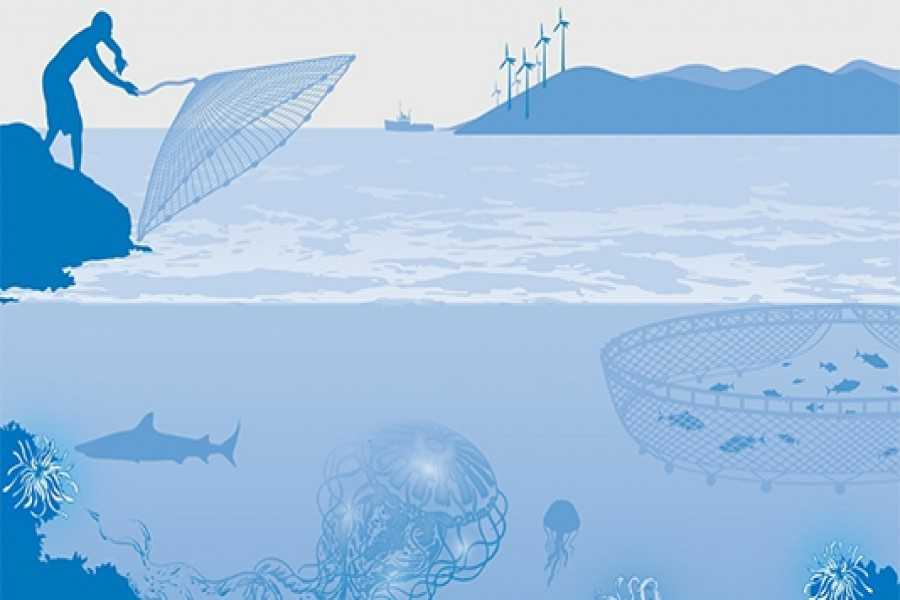Bangladesh’s coastal communities deserve advantages from the blue economy: People’s Tribunal

Image: Collected
Exploitation of Bangladesh’s marine assets may result in lack of bio-diversity and exclusion of coastal communities unless problems of privileges and environment are actually addressed, a good panel of inter-talk about civic groups offers warned.
The ‘Independent People’s Tribunal on Implications of the Blue Economy in Bangladesh’held nearly on Monday called the federal government to generate a thorough impact assessment on projects associated with the ‘Blue Economy’in order to protectthe marine ecology and rights of the communities.
“If Bangladesh implements the Blue Market properly, it can be huge advantages to the coastal communities,” said A Gandimathi while presenting a report on “The Blue Economy in Bangladesh: Exploring the Socio-Economic Political and Ecological Implications on the Coastal Communities”.
She, even so, expressed apprehensions that the people surviving in the coastal belt may be evicted or lose their livelihoods in case projects for exploiting the blue market happen to be undertaken without considering their common interests and urgency of protecting marine biodiversity.
Although the blue economy has been projected as a style of sustainable economical growth, the Tribunal termed it as an extension of the ‘neoliberal’policies that will tend to be implemented in South and Southeast Asia, according to a media release issued on Tuesday.
The board of jury at the session recommended that coastal stakeholders ought to be mixed up in decision-making process. It added that nature, not profiteering, ought to be offered priority and coastal means and careers of the communities ought to be protected.
The jury board included Food Sovereignty Advocate from India Dr. Vandana Shiva, Ex - UN Rapporteur, India Anand Grover, Executive Director at Abika Uhaki Foundation, Kenya, Ezar Mbogiri, and Member-EC at Nari pokko Ms. Sheerin Parvin Huq. Ms. Jesu Rethinam, Director at SNEHA, India, defined the objectives of the tribunal.
Md. Mamunul Haque, a resident of Moheshkhali, Cox’s Bazar, who lives near a particular Economic Area, said the neighborhood labourers ought to be hired on important basis for careers at the zone. “The government should arrange shelters for the displaced persons due to the job,” he advised the tribunal.
A deep-sea fish employee from Cox’s Bazar Md Abdul Halim regretted that small-scale fishers already are losing organization to big players. Dry fish employee Md. Aman Ullah discussing declining working chances in dry seafood sector, urged the government to supply training on organic and natural dry fish production.
A resident of Cox’s Bazar town Asif Ud Doula said tourism organization is increasingly staying captured by greater players from outside.
Standard Secretary of World Forum of Fisherfolk Persons Ms Nadine Nembhard, International Setting up Committee for Fisheries Performing Group and WFFP (South Africa)Mr. Naseegh (one name), Executive Director of COAST (Bangladesh) Rezaul Karim Chowdhury, Chairperson at National Fisherfolk Forum (India) Narendra Patil joined up with the dialogue moderated by MJ Vijayan, General Secretary of Pakistan India Peoples’ Forum for Peace and Democracy (India), and Sanat Kumar Bhowmik, Deputy Executive Director at COAST (Bangladesh).
Source: https://www.thefinancialexpress.com.bd
Tags :
Previous Story
- Bad to worse: Looming locust attack amid coronavirus...
- Tourism, hospitality haemorrhaging money, employees
- CPA may waive dues of LNG terminals, carriers
- Chadpur’s Balu Char Can be the Next Cox’s...
- Clarks Inn Group keen to help develop hospitality...
- India-Bangladesh To Start Cruise Tourism Via Picturesque Sunderbans